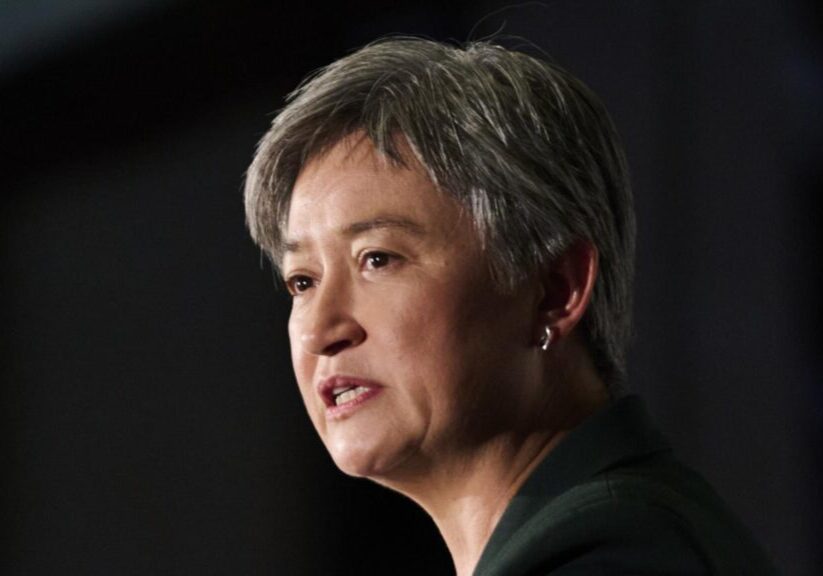IN THE MEDIA
Much to celebrate in Israel’s 60 years
Mar 20, 2008 | Colin Rubenstein
Colin Rubenstein
Canberra Times – 20 March 2008
(See the published version: http://canberra.yourguide.com.au/news/opinion/opinion/much-to-celebrate-in-israels-60-years/1206872.html
As recognised in last week’s bi-partisan federal parliametnary motion introduced by Prime Minister Kevin Rudd, Israel’s story over the last 60 years has been an amazing and inspiring one. Unfortunately, Israel’s critics have used its conflict with the Palestinians to cast doubt on the legitimacy of efforts to celebrate Israel’s 60th birthday. It is too often forgotten that there is much more to Israel than just conflict with its neighbours, and much of it deserves celebrating.
It is worth celebrating that a scattered, dispossessed people, suffering oppression and discrimination, and having just emerged from history’s most heinous genocide, accepted the newly formed United Nations’ Partition Plan and managed to build an enviable society in part of their ancestral homeland.
It is worth celebrating that Israel has built and maintained a strong, thriving and robust democracy governed by the rule of law. Indeed, Israel is virtually the sole democracy in the Middle East, with full protections for the democratic and human rights of all citizens.
Almost one-fifth of Israel’s population is Muslim or Arab. Israeli-Arab citizens have the same rights as Jewish citizens, are represented in Israel’s parliament by Israeli-Arab parties, Arabic is one of two official languages of the state, and instruction in Arab schools is in Arabic.
Israel also boasts a booming economy, centred on the hi-tech industry. Israel’s currency recently became one of just 17 currencies traded in the global currency market.
Israel also has made enormous contributions to the world in culture, science, medicine, and agriculture. Important for Australians, Israeli companies have led the world in irrigation technologies that help maximise and preserve scarce water resources.
These achievements, and others, are certainly worth celebrating. All the more so given the long odds Israel faced, from being attacked by five of its much larger Arab neighbours at its inception, to having not known a single day of peace since. Sadly, had the Arab states accepted the UN Partition Plan in 1947, as Israel did, we could today be celebrating the 60th birthday of both Israel and Palestine.
This, of course, points to the great challenge remaining for Israel: to finally achieve an enduring and equitable peace with the Palestinians and its other neighbours.
Israeli Prime Minister Ehud Olmert has said repeatedly that Israel is prepared to make “painful concessions” in exchange for a two-state Israeli-Palestinian peace. Unfortunately, Israel’s past efforts at exchanging land for peace with the Palestinians have been stymied by ongoing terrorism, which continued even after the Oslo Accords. Similarly, Yasser Arafat responded to former prime minister Ehud Barak’s far reaching offers at Camp David in 2000 and Taba in 2001 by launching the second intifada.
Today, Palestinian terrorist organisations like Hamas, funded mainly by Iran, continue to refuse to accept Israel’s right to exist and use terrorist attacks to scuttle the prospects for peace. Nowhere is this clearer than in the Gaza Strip.
In August 2005 Israel completely withdrew all of its settlers and soldiers from the Gaza Strip. Putting paid to the feint that Palestinian terrorist attacks are rooted in Israel’s “occupation”, Israeli towns near the Gaza border have been the target of Palestinian rocket attacks ever since. These attacks have increased dramatically in quantity and range since Hamas seized control of the Strip last June.
Israel has tried various measures to bring a halt to the attacks on its civilian population, including an economic embargo on Hamas, bolstering Abbas and demonstrating the benefits of negotiation. It also has used targeted and limited uses of force, including strikes against specific terrorists, rocket squads, and weapons factories.
No other nation would be expected to simply suffer such attacks on its civilian population, and few would show the restraint in responding that Israel has – including continuing to provide electricity and fuel to Gaza and allowing in humanitarian supplies. Yet some reflexively label any and all Israeli response as “disproportionate force”, while failing to suggest what would be a “proportionate” response to indiscriminate and illegal rocket attacks on Israel’s citizens
These critics’ one idea is for Israel to “engage” or negotiate with Hamas. Yet Hamas is not interested in any lasting peace agreement. Hamas steadfastly refuses to recognise Israel’s right to exist, renounce violence, or agree to abide by previous agreements signed between Israel and the Palestinian Authority – the basic pre-requisites to being party to peace negotiations. And Hamas openly says it would use any ceasefire to simply rearm and regroup, as it has in the past, and then re-open hostilities when militarily and politically convenient.
Moreover, engaging with Hamas would completely undermine the more moderate Abbas government and the on-going negotiations with Israel. Despite the violence from Gaza, Israel and the PA are continuing to pursue such negotiations in the hopes that if Gazans see peace and economic development in the West Bank, sooner or later they will demand or force Hamas to allow them to be part of it.
But caving in to Hamas violence would only undermine any hope of such an outcome by sending the wrong message to the Palestinian people – that violence breeds success.
Israel is not perfect. But it need not be for others to recognise and celebrate its many achievements. Unfortunately, the language used by critics of Parliamentary motions or other gestures celebrating Israel’s 60th birthday actually makes peace more difficult to achieve. By calling into question Israel’s right to exist, they negate the premise of the only viable way to end the conflict: two states for two peoples.
Dr. Colin Rubenstein is Executive Director of the Australia/Israel & Jewish Affairs Council (AIJAC). Previously, he taught Middle East politics at Monash University for many years.
Tags: Israel











